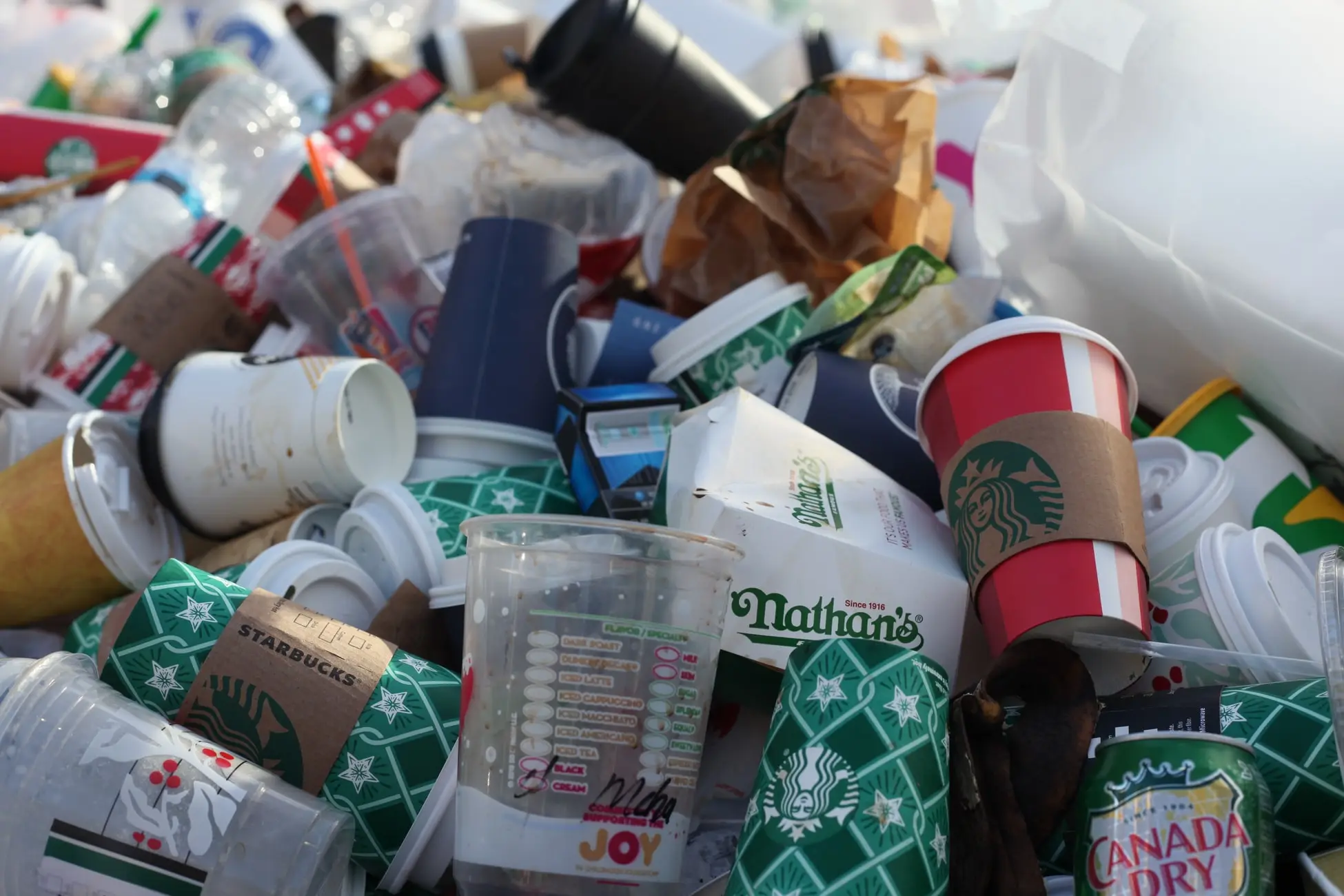Cupertino Single-Use Plastics
April 23, 2022
OCupertino City Council is currently considering a new law that, if implemented, would ban all restaurants from using single-use plastics starting June of 2023. The draft ordinance extends the 2014 restaurant ban on expanded polystyrene (EPS) foam foodware. It aligns with the Council’s adoption of a Zero Waste Policy in 2017, favoring reusable foodware over single-use items.
The draft law is based on environmental concerns such as microplastics and how plastic foodware is often only used once and briefly. For example, it only takes 20 minutes to finish a large boba drink, but after being thrown out, the plastic ends up in a landfill, where it does not biodegrade for hundreds of years. Instead, it breaks into smaller microplastics that end up in the ocean, air, soil and humans. According to a study conducted by the University of Newcastle in 2019, the average person consumes around five grams of plastic every week, or “the equivalent to a credit card’s worth of microplastics.”
Moreover, the entire life cycle of a piece of plastic is harmful, from the production process where factories pollute surrounding air and water to toxic chemicals leached into food and beverages. According to Bennington College and Beyond Plastics, the plastic industry “releases at least 232 million tons of greenhouse gasses each year,” contributing to global warming. Furthermore, only 8.7% of plastic gets recycled (Environmental Protection Agency 2018), and of that number, many are “downcycled” or turned into products that cannot be recycled again.
Focusing more specifically on Cupertino, a pre-COVID 2018 and 2019 study found that residents and businesses discard over 300 tons of single-use foodware and expanded polystyrene packing material per year. “This tonnage amount has likely increased because of the pandemic and increased takeout food orders,” Cupertino Environmental Programs Manager Ursula Syrova said in a City Council Staff Report on March 1, 2022.
If passed, the ordinance would call for changes in two phases. The first phase would require food service ware such as “utensils, chopsticks, condiment cups and packets, straws, stirrers, splash sticks, and cocktail sticks [to] be provided only upon request by customers,” effective on June 1, 2022. In June of 2023, a second stricter phase would be implemented, requiring food services to prohibit all single-use and bio-plastics and enforce reusable ware for dining on-site. Restaurants would serve takeout in “paper, wood, bamboo, other fiber-based compostable food service ware [or] containers made entirely from aluminum,” according to the March 1 proposal. However, “Plastic straws would be allowed for those with medical need,” for example, those with neuromuscular disabilities.
These requirements would be similar to legislation previously passed in Mountain View and Palo Alto. The report prepared by Syrova also suggested future recommendations for 2024, including banning the local sale of single-use plastic foodware, testing a reusable to-go program, expanding the ban beyond food service ware and potentially charging customers who purchase single-use foodware.
On March 1, at a preliminary Study Session surrounding the ordinance, Cupertino High School Senior and Cupertino Chapter of Silicon Valley Youth Climate Action Student Leader Gwyn Azar supported the draft ordinance. Silicon Valley Youth Climate Action is a youth nonprofit that empowers “teens and young adults to combat climate change with impactful education and policy initiatives.”
Said Azar, “This is going to be a very necessary change in our society at large, and it’s very encouraging to see Cupertino stepping up and joining the efforts of other municipalities in the area leading the way in reducing our plastic waste.”
Azar is not the only proponent of this piece of legislation. When Recology, Cupertino’s waste management company that “provides collection and disposal of municipal solid waste, recycling, and [compost]” services, was asked about their view on the proposed law, said General Manager John Zirelli, “Myself and Recology support the […] eliminating plastics that are not recyclable. […] I think it’s a good policy, especially as the plastic markets get more, you know, difficult to find homes for, so […] we support it.”
However, a 2021 survey of 100 local restaurants raised concerns about the increased cost and availability of compliant compostable food service ware. As noted in the survey report, “57% of those surveyed indicated they were interested in technical or financial assistance to help make the required changes.” Councilmembers were especially concerned about boba tea shops that rely on plastic cups and heat seals to package their products.
Additionally, businesses were open to switching to reusable food ware “but worried about changing their operations, had concerns about safety against [COVID], and thought that staffing for dishwashing or dish storage might be an issue.”
Despite this hesitance, “Food facilities survey results indicated that the cost is similar to what they are paying now and if there is technical assistance available to help offset increased costs, these managers would also widely support a foodware ordinance.” The City Council began discussing potential financial assistance and making exceptions for struggling businesses during their March 1, 2022 meeting, which may assuage these concerns. Since then, the draft ordinance has been on the agenda to be discussed.
